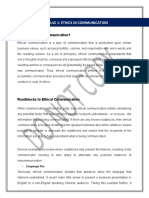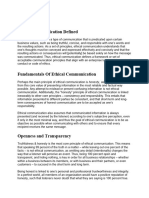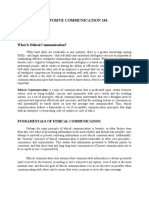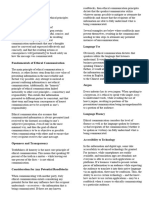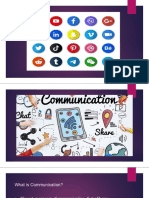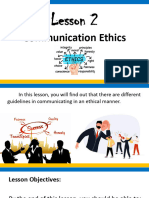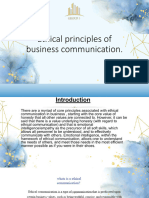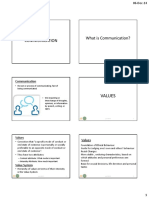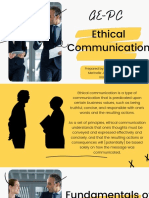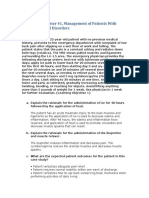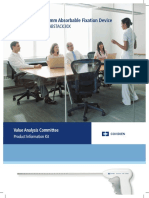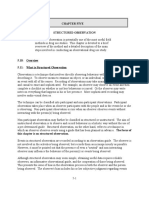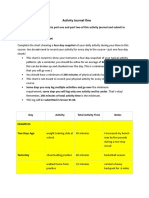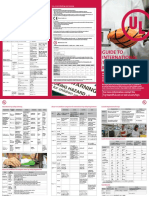0% found this document useful (0 votes)
31 views7 pagesModule 4 in GE 2
The document outlines the principles of ethical communication, emphasizing honesty, active listening, and non-judgmental speech as key components. It distinguishes between ethics and morals, highlighting that ethics are externally defined rules while morals are personal beliefs. Additionally, it provides examples from various industries to illustrate the importance of ethical communication in fostering effective workplace interactions.
Uploaded by
betlogCopyright
© © All Rights Reserved
We take content rights seriously. If you suspect this is your content, claim it here.
Available Formats
Download as PDF, TXT or read online on Scribd
0% found this document useful (0 votes)
31 views7 pagesModule 4 in GE 2
The document outlines the principles of ethical communication, emphasizing honesty, active listening, and non-judgmental speech as key components. It distinguishes between ethics and morals, highlighting that ethics are externally defined rules while morals are personal beliefs. Additionally, it provides examples from various industries to illustrate the importance of ethical communication in fostering effective workplace interactions.
Uploaded by
betlogCopyright
© © All Rights Reserved
We take content rights seriously. If you suspect this is your content, claim it here.
Available Formats
Download as PDF, TXT or read online on Scribd
/ 7



